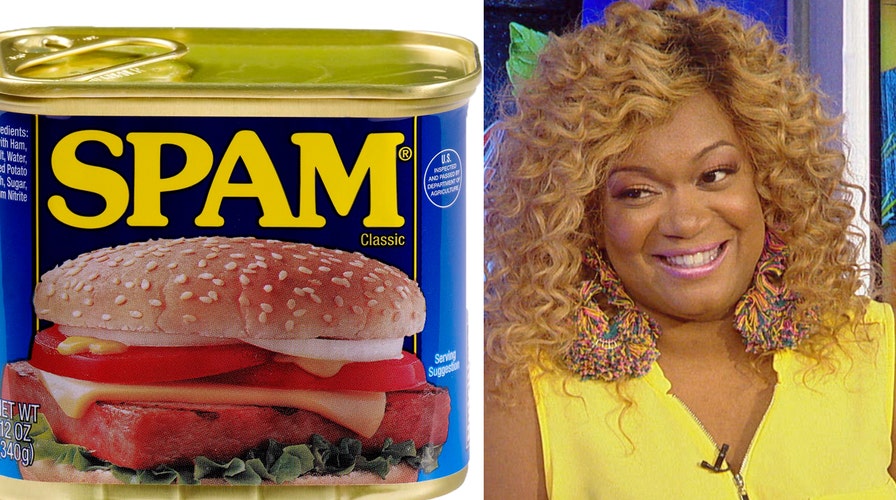Sunny Anderson salutes the troops with Spam
Fox Foodie: The Food Network star and U.S. Air Force Veteran dishes on her time in the military—and her love of Spam
It’s often derided as inedible, and a symbol of all the wrongs perpetrated against food. But love it or hate it, there’s no denying Spam is one of the most iconic and longstanding food brands still on supermarket shelves.
Spam first appeared in 1937, a processed combination of pork shoulder, ham, water, starch, salt and preservatives. Its affordability and long shelf life boosted its popularity during the last years of the Great Depression, but it was the commencement of World War II that elevated Spam into the tried-and-true staple it still is.
By the end of WWII, the US Army had purchased over 165 million pounds of Spam for its troops, and it’s the continued distribution of the small tins of ‘ham’ during military action that have seen Spam make a culinary impact in some unusual places.
While many of us are familiar with Spam making an appearance in the pantries of our grandparents or the collected works of Monty Python, it's developed an obsessive following in places like Hawaii and South Korea.
RELATED: 6 surprising things you never knew about SPAM
In the former, it’s celebrated with a sushi-like snack called ‘Spam Masubi’, a delightfully delicious fusion of American and Japanese flavors.
Spam Jam, a festival of Spam, also takes place in Waikiki every year, with restaurants and cafes competing to use the tinned meat in innovative and delicious new ways.
Spam’s presence in South Korea is also noteworthy. Towards the end of the Korean War, displaced locals in many decimated villages were given intermittent handouts of food from US Army bases. These would commonly include cheese slices, hot dogs, baked beans, instant noodles and, of course, Spam.
In one of the more chaotic but impressive examples of ‘cuisine fusion’, Koreans developed a dish that combined these ingredients with their own gochujang (Korean chilli paste), rice noodles, tofu and kimchi. Called ‘budae jjigae’, or ‘troop stew’, it became affectionately known as Army Base Stew, an unusual dish with a cult following around the world.
Today, Koreans value Spam as a luxury rather than a necessity. Celebrities appear in television commercials for the tinned meat, and markets even sell gold-trimmed gift boxes full of tins of Spam — considered the ultimate lunar thanksgiving gift.
RELATED: Would you eat SPAM in a bag?
While it may not be the height of culinary sophistication, Spam is far more than a punchline. With 80 years of history behind it, a part in WWII and an avid following in some unlikely places, Spam might be just as “lovely!” and “wonderful!” as Monty Python always suggested.

